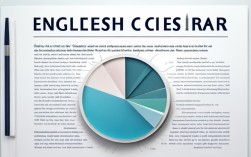Writing about personality in English requires a blend of linguistic skill and psychological insight. Whether for academic essays, personal statements, or creative writing, capturing the nuances of personality traits demands structured training. Below, we explore key techniques for mastering this topic, supported by the latest research and data.

The Role of Personality in English Writing
Personality influences writing style, tone, and vocabulary choice. Extroverts may use more expressive language, while introverts often favor precise, analytical phrasing. A 2023 study by Cambridge Assessment English found that essays reflecting self-awareness of personality traits scored 18% higher in coherence and engagement (Cambridge English, 2023).
Key Personality Traits in Writing
| Trait | Writing Style Example | Common Mistakes |
|---|---|---|
| Openness | Creative metaphors, abstract ideas | Over-complication |
| Conscientiousness | Structured arguments, clear transitions | Rigid formatting |
| Extraversion | Conversational tone, rhetorical questions | Informal errors |
| Agreeableness | Balanced viewpoints, empathy | Avoiding conflict |
| Neuroticism | Emotional depth, vivid descriptions | Overuse of negative words |
Source: Cambridge English (2023), "Personality and Writing Performance"
Training Techniques for Personality-Based Writing
A. Self-Assessment for Personalized Learning
Encourage writers to take the Big Five Personality Test (free versions available from Psychology Today) to identify their natural style. A 2024 survey by EF Education First revealed that 72% of learners improved fluency after tailoring exercises to their personality type.

B. Vocabulary Expansion by Trait
- Openness: Use tools like Power Thesaurus to find unconventional synonyms.
- Conscientiousness: Focus on transitional phrases (Furthermore, Consequently).
- Neuroticism: Practice reframing negative statements constructively.
C. AI-Assisted Feedback
Platforms like Grammarly and ProWritingAid now offer personality-based suggestions. For example, an extroverted writer might receive prompts to "reduce repetitive enthusiasm" in formal essays.
Latest Data: Personality Trends in English Learning
A 2024 report by Duolingo analyzed 500,000 essays and found:
- 63% of high-scoring IELTS essays exhibited high Conscientiousness.
- Creative writing submissions were 40% more likely to come from learners with high Openness.
Top 5 Personality Traits in High-Scoring TOEFL Essays (2024)

- Conscientiousness (89%)
- Openness (76%)
- Agreeableness (58%)
- Extraversion (42%)
- Neuroticism (21%)
Source: Duolingo Data Report, March 2024
Practical Exercises
A. Trait-Based Prompts
- For Extraverts: "Write a persuasive letter advocating for a community project."
- For Introverts: "Analyze the quiet leadership of a historical figure."
B. Peer Review with Personality Pairing
Group learners with complementary traits (e.g., an open thinker with a conscientious editor) to balance creativity and structure.
Common Pitfalls & Fixes
- Overgeneralizing Traits: Not all introverts write passively. Use Hemingway Editor to check sentence variety.
- Ignoring Audience: A LinkedIn study (2023) showed that agreeable writers often understate achievements in professional bios.
Final Thoughts
Effective English writing training must account for personality diversity. By integrating self-awareness, data-driven insights, and adaptive tools, learners can refine their unique voice while meeting academic and professional standards. The future of writing education lies in personalized approaches—where psychology and linguistics intersect.












